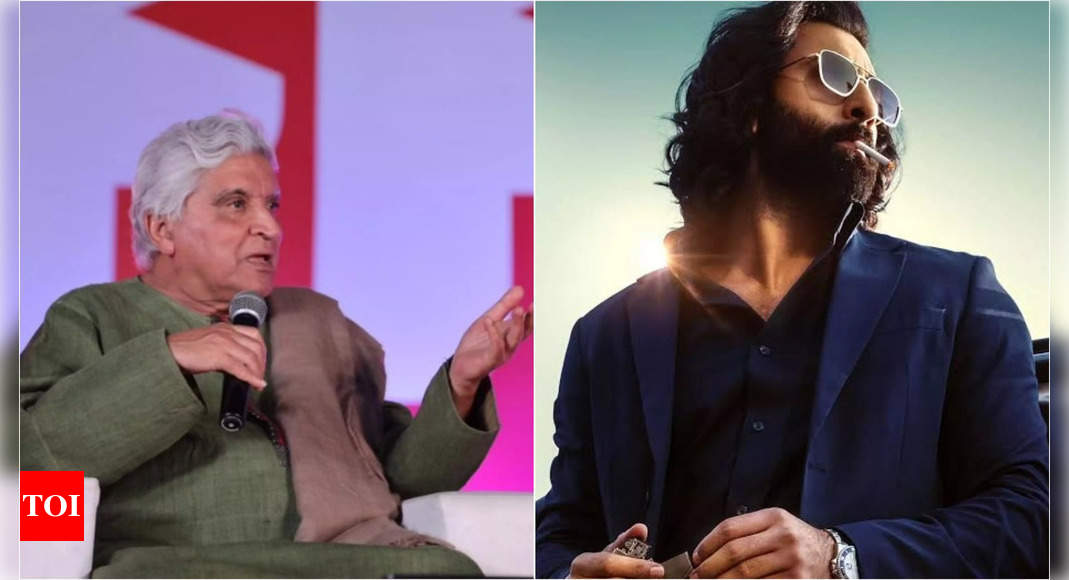| Hindi Movie NewsJaved Akhtar criticizes the success of films that glorify toxic masculinity, possibly alluding to ‘Animal.’ | Hindi Movie News
In a thought-provoking address at the Ajanta Ellora International Film Festival in Aurangabad, the eminent lyricist Javed Akhtar delved into the contemporary cinematic landscape, expressing his concerns about the types of films finding success in today’s era. Although he refrained from explicitly mentioning Sandeep Reddy Vanga’s latest venture, ‘Animal,’ which boasts a star-studded cast including Ranbir Kapoor, Rashmika Mandanna, Anil Kapoor, and Bobby Deol, Akhtar’s words subtly hinted at an underlying critique.
During his address, Javed Akhtar conveyed his discomfort with the success of films depicting disturbing scenarios. He highlighted the potential danger when a film becomes a super hit despite portraying scenes where a man asks a woman to lick his shoe or justifies slapping a woman. Akhtar’s remarks alluded to a specific scene in ‘Animal’ involving Ranbir Kapoor and Triptii Dimrii’s characters. Notably, Sandeep Reddy Vanga’s previous film, ‘Kabir Singh,’ had also faced criticism for a scene depicting the protagonist slapping his love interest.
Akhtar underscored the crucial role of the audience in shaping the industry’s direction, urging them to take responsibility for the content they consume. He emphasized that the audience plays a significant role in determining the types of films and music that gain prominence, stating, “More than the filmmaker, the onus lies with the audience today. You take responsibility too for the kind of films you watch. That’s what decides what kind of films will be made.” He added, “You decide what’s made and what should be rejected. The values and moralities shown in our films lie in your hands.”
As ‘Animal’ continues to generate polarizing opinions, with criticisms for perpetuating toxic masculinity and simultaneous praise for Ranbir Kapoor’s performance, the film has achieved commercial success at the box office. Javed Akhtar’s insightful commentary adds a layer of reflection on the societal responsibility associated with the consumption of such cinematic content, prompting a thoughtful examination of the impact and values conveyed by popular films.


